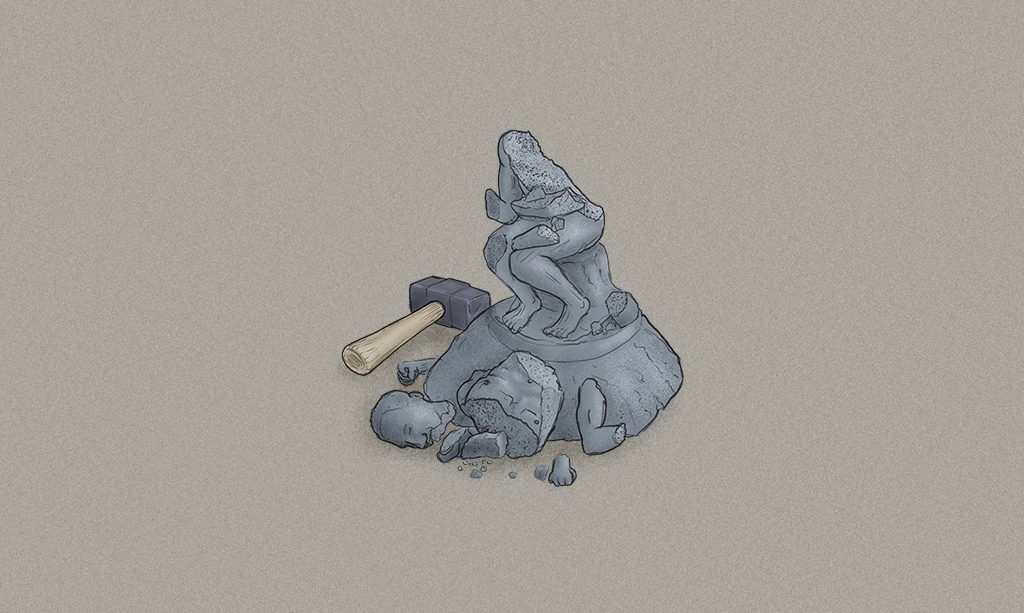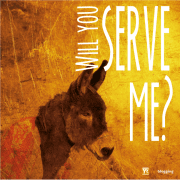How Can I Respond to Racial Injustice?
Written By Bella Newberry, USA
I saw the pain. I saw the protests. I saw the riots. I heard the stories and the conversations. And my heart broke for my country, for my brothers and sisters.
As a believer, I know that I am called to live out righteousness and justice. Yet living in Taiwan, so far away from America, I have felt lost in how to speak out against the injustices that have been so exposed in my home country over the last several months.
Our God is a God who continually welcomes the oppressed. He is the One who delivered the Israelites out of slavery, the One who sent prophets to call out His people as they trampled the poor, and He is the One who entered humanity as a lowly carpenter and healed the leper, spent time with the outcast, and spoke comfort to the oppressed. Justice, including racial justice, is important to God. He is a God who delivers people from evil. So it should be important to us.
But as I looked around me, questions came quicker than answers. What is systematic racism? What is the response of the church? What is the solution? What does the gospel have to say about this? What has my life reflected about what I believe about others?
I read articles; I signed petitions; I sent emails to local authorities; I listened to sermons and series about racial injustice. But in the midst of all of that, I still felt so overwhelmed with the question: how do I respond to such suffering caused by racial injustice?
Through repentance and prayer, God has been teaching me how to move forward.
First, I repented.
Living in Taiwan, I found it easy to look at America and accuse people of being racist and filled with hate. Yet, as I prayed for my country, the Lord began to reveal very specific personal things I needed to repent of.
I began asking if there was racism in my own heart. What prejudices do I have? Are there people I think less of? Have anger towards? Am I quick to harbor hatred or speak poorly of others?
The Lord led me to repent of prejudices I had to three specific groups of people. I repented of when I was quick to judge some black men. I repented of anger that I had towards police, realizing that I had thought most of them were abusing their power. And I repented of the jokes that I had made about mainland China, realizing living in Taiwan, the culture around me had influenced my thoughts.
As I repented of those things, I realized that each one of those sins in my life came from a few incidents that I had allowed to influence my thoughts towards these people. In doing so, I had sinned against the image of God that they each bear.
In repenting, I began to desire to pray more.
I have been able to gather with many other expats from all over America and even the world and pray together. In these times of prayer, I have begun praying for people by name.
I interceded for communities to be thriving, for hope to be given to those who are oppressed. I prayed for George Floyd’s family who still have to wake each day without a father and a brother. I prayed for my friends from high school who have been treated differently because of the color of their skin. I even prayed for police, the ones I so much wanted to blame and accuse for this evil.
Jesus is described as one who neither reviled nor threatened, even when He was reviled or suffered Himself. No deceit was found upon his lips (2 Peter 2:21-23). I began to pray that I would be a person who does not revile, threaten, or speak lies about any group of people. But rather that I could look at this injustice, and look back to Jesus and see that whatever the circumstances, He endured, He loved, and He gave hope.
As I prayed, God began teaching me humility.
As I’ve searched for the solution—What will bring justice? Will there ever be racial reconciliation?—I have found that I do not have the answers. I don’t know how to respond. I don’t always know how best to love and be an agent of reconciliation and unity.
Rather than having answers, I have begun to ask questions. I want to know how I can dive into the deep pain of my brothers and sisters who have experienced racism. I recognized my lack of knowledge about racial injustice, and it took the death of George Floyd to recognize the state of my country. His death evoked such pain in me that I wanted to know how and why something like this could happen.
In the process, I need humility to ask questions instead of trying to come up with an answer.
I need humility to consider my brother over myself. I need to be willing to admit to being wrong, and willing to be the change. And so I began reading and listening to as much I could about racism in America, white privilege, anti-racism, and what to do. So far, I have found the most helpful thing to do is simply becoming informed.
As I wrestle, I have found myself looking to the person of Jesus. In Philippians chapter 2, Jesus is described as emptying Himself and taking the form of a servant. In His death, our Savior took on the greatest suffering.
Even as we are surrounded by suffering and justice and don’t know how to respond to the brokenness, He does. And we can take great comfort in knowing that our Savior understands pain, suffering, and injustice. The pinnacle to God’s love is on full display in the suffering servant Jesus. Believers are to look at that picture of humility and respond by full obedience and imitation to Jesus.
I don’t know what following the example of Jesus looks like perfectly in dealing with issues of social injustice, but I do know that it looks like His humility.
I don’t know the answers and solutions or when Jesus will return and restore all things, but I do know it was through His suffering that glory came.
Though for now we suffer injustice, uncertainty, brokenness in our own lives, in the church, and in the world around us, we know that the kingdom we live for is marked by glory.
Yes, we can and should fight for things to be made right, but ultimately we must look to Jesus, the suffering servant and risen savior, trusting that He will one day bring complete restoration.
Until He does, we live out His example.











Leave a Reply
Want to join the discussion?Feel free to contribute!